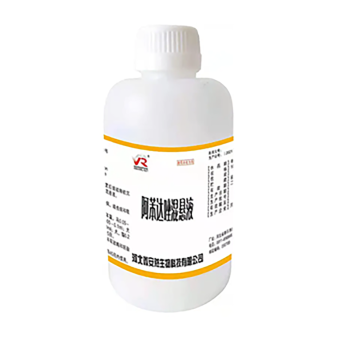- Afrikaans
- Albanian
- Amharic
- Arabic
- Armenian
- Azerbaijani
- Basque
- Belarusian
- Bengali
- Bosnian
- Bulgarian
- Catalan
- Cebuano
- Corsican
- Croatian
- Czech
- Danish
- Dutch
- English
- Esperanto
- Estonian
- Finnish
- French
- Frisian
- Galician
- Georgian
- German
- Greek
- Gujarati
- Haitian Creole
- hausa
- hawaiian
- Hebrew
- Hindi
- Miao
- Hungarian
- Icelandic
- igbo
- Indonesian
- irish
- Italian
- Japanese
- Javanese
- Kannada
- kazakh
- Khmer
- Rwandese
- Korean
- Kurdish
- Kyrgyz
- Lao
- Latin
- Latvian
- Lithuanian
- Luxembourgish
- Macedonian
- Malgashi
- Malay
- Malayalam
- Maltese
- Maori
- Marathi
- Mongolian
- Myanmar
- Nepali
- Norwegian
- Norwegian
- Occitan
- Pashto
- Persian
- Polish
- Portuguese
- Punjabi
- Romanian
- Russian
- Samoan
- Scottish Gaelic
- Serbian
- Sesotho
- Shona
- Sindhi
- Sinhala
- Slovak
- Slovenian
- Somali
- Spanish
- Sundanese
- Swahili
- Swedish
- Tagalog
- Tajik
- Tamil
- Tatar
- Telugu
- Thai
- Turkish
- Turkmen
- Ukrainian
- Urdu
- Uighur
- Uzbek
- Vietnamese
- Welsh
- Bantu
- Yiddish
- Yoruba
- Zulu
8 月 . 20, 2024 06:29 Back to list
Dosage Guidelines for Injectable Ivermectin Used in Canine Veterinary Medicine
Injectable Ivermectin for Dogs Dosage and Guidelines
Ivermectin is a widely used antiparasitic medication that has proven effective in treating various parasitic infections in dogs. Although it is commonly administered in oral form, injectable ivermectin is also available and can be beneficial in certain situations. Understanding the proper dosage and application of injectable ivermectin is crucial for ensuring the safety and efficacy of treatment in canine patients.
Overview of Ivermectin
Ivermectin belongs to a class of medications known as avermectins, which target a variety of internal and external parasites. It is primarily used to treat conditions such as heartworm disease, certain types of mange, and intestinal parasites like roundworms and hookworms. Importantly, while ivermectin is safe for many dogs, it can be toxic to certain breeds, especially herding breeds like Collies, Australian Shepherds, and Shetland Sheepdogs due to a genetic mutation that affects drug metabolism.
Injectable Ivermectin Indications and Benefits
Injectable ivermectin may be preferred over oral formulations in specific cases. For instance, dogs that are vomiting or have gastrointestinal issues may not absorb oral medication effectively. Additionally, injectable forms allow for quicker action and can be used in emergency situations, such as severe parasitic infestations or when rapid drug delivery is necessary.
Dosage Guidelines
injectable ivermectin for dogs dosage

The dosage of injectable ivermectin for dogs can vary based on several factors, including the condition being treated, the dog's weight, and any underlying health issues. The standard dosage range for treating heartworm disease is typically between 0.2 to 0.5 mg/kg (milligrams per kilogram of body weight) given subcutaneously. For other parasitic infections, the dosage may be adjusted accordingly.
It is essential to follow a veterinarian’s prescription and guidance when administering injectable ivermectin. Overdosage can lead to severe toxicity, resulting in symptoms such as lethargy, tremors, incoordination, drooling, vomiting, and in extreme cases, seizures or death. Therefore, accurate calculation of dosages based on the dog’s body weight is critical.
Administration
The administration of injectable ivermectin should only be performed by a trained veterinary professional. The injection is typically given subcutaneously, which means it is injected just under the skin. The veterinarian will also evaluate the dog’s overall health before proceeding with treatment, considering any potential contraindications or health issues.
After administration, it is important for pet owners to monitor their dogs for any adverse reactions. If any unusual behaviors or symptoms are noted, veterinary assistance should be sought immediately.
Conclusion
Injectable ivermectin can be an effective tool in the treatment of various parasitic infections in dogs, providing a viable option for situations where oral medication is not appropriate. The careful determination of dosage, as well as thorough communication with a veterinarian, is vital for ensuring the health and safety of canine patients. Always prioritize your dog's well-being by discussing treatment options with a qualified veterinarian and never attempt to self-medicate, as this can lead to dangerous outcomes. Remember, informed decisions are the best way to keep your furry companion healthy and happy.
-
The Power of Radix Isatidis Extract for Your Health and Wellness
NewsOct.29,2024
-
Neomycin Sulfate Soluble Powder: A Versatile Solution for Pet Health
NewsOct.29,2024
-
Lincomycin Hydrochloride Soluble Powder – The Essential Solution
NewsOct.29,2024
-
Garamycin Gentamicin Sulfate for Effective Infection Control
NewsOct.29,2024
-
Doxycycline Hyclate Soluble Powder: Your Antibiotic Needs
NewsOct.29,2024
-
Tilmicosin Premix: The Ultimate Solution for Poultry Health
NewsOct.29,2024













